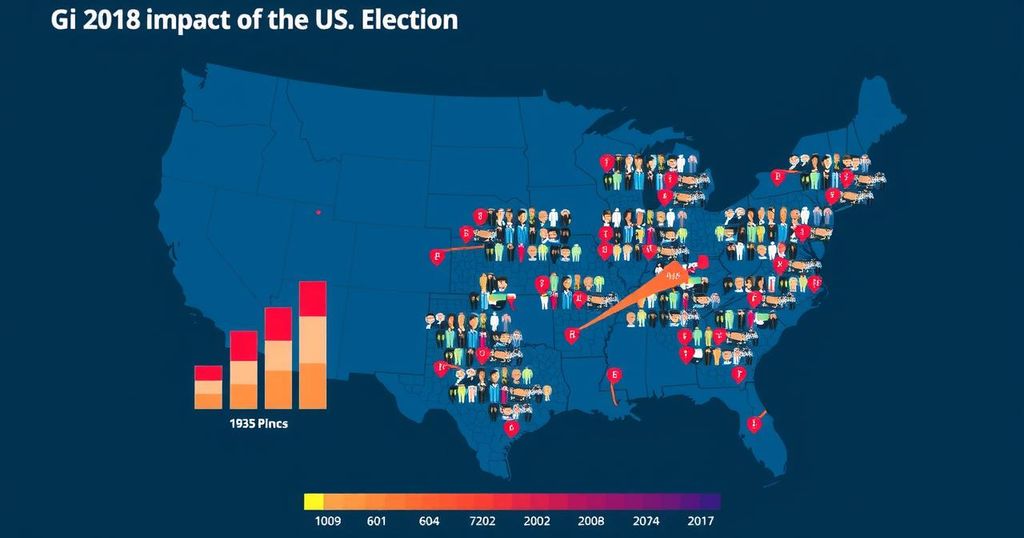The forthcoming U.S. presidential election holds significant global consequences as either Kamala Harris or Donald Trump likely adopts a hawkish approach toward China and different foreign policies affecting countries like Israel. Perspectives vary across regions, with notable differences in how Trump and Harris are viewed in terms of leadership and impact on issues such as climate change.
The upcoming U.S. presidential election bears significant global implications, regardless of who is elected. Regardless of whether Kamala Harris or Donald Trump assumes the presidency, the international community will be impacted by their policies. Experts indicate that both candidates would adopt a hawkish stance towards China, with Trump advocating for blanket tariffs which could severely disrupt China’s export-driven economy, while Harris is expected to sustain targeted tariffs based on national security assessments. In the realm of foreign relations, especially concerning Israel, polling reveals a General preference among Israelis for Trump. While Harris may exert more pressure on Israel to negotiate peace, she is unlikely to withdraw military support, in contrast to Trump’s potentially less stringent approach towards Israeli settlements in regions like Gaza. Trump’s unpredictable nature regarding Middle Eastern politics further complicates this issue. Perspectives in Africa diverge; some citizens regard Trump as a decisive leader, likening him to familiar local governance styles, despite his previously derogatory remarks about African nations. Regarding climate change, the stakes are high: as a leading historical emitter of carbon, U.S. policy post-election will critically influence global strategies to combat climate change. As voters prepare for the polls on Election Day, various U.S. demographic dynamics are observed, including potential shifts in allegiance among white women voters and the electoral significance of groups like the Vietnamese American community in pivotal regions.
The article examines the implications of the U.S. election on international relations, particularly focusing on crucial policy issues concerning China and Israel. It highlights the contrasting approaches of the two candidates, Donald Trump and Kamala Harris, regarding key global matters including trade tariffs, military aid, and climate change. Moreover, it deals with perceptions of leadership in different geographic regions, including Africa, and sets the electoral context amid recent polling data.
In conclusion, the upcoming U.S. election stands at a critical juncture where the outcomes will dictate international relations and policy, particularly with respect to China, Israel, and environmental issues. The contrasting strategies of the candidates reflect the varying global stakes involved, influencing geopolitical stability and collaboration. Thus, the global community keenly observes the electoral developments, understanding that both immediate and long-term implications will cover a broad spectrum of international relations and global policy-making.
Original Source: www.nytimes.com






